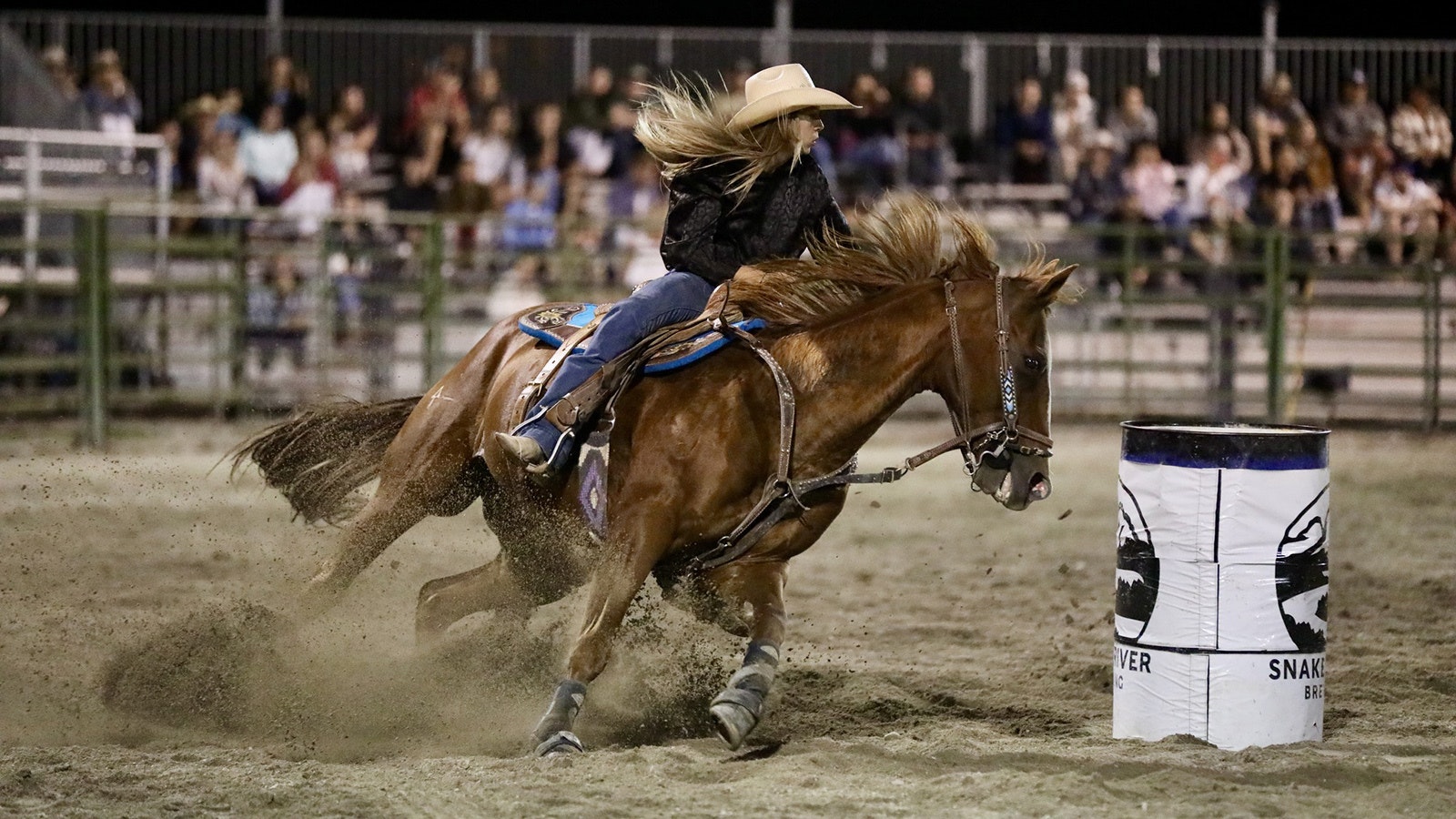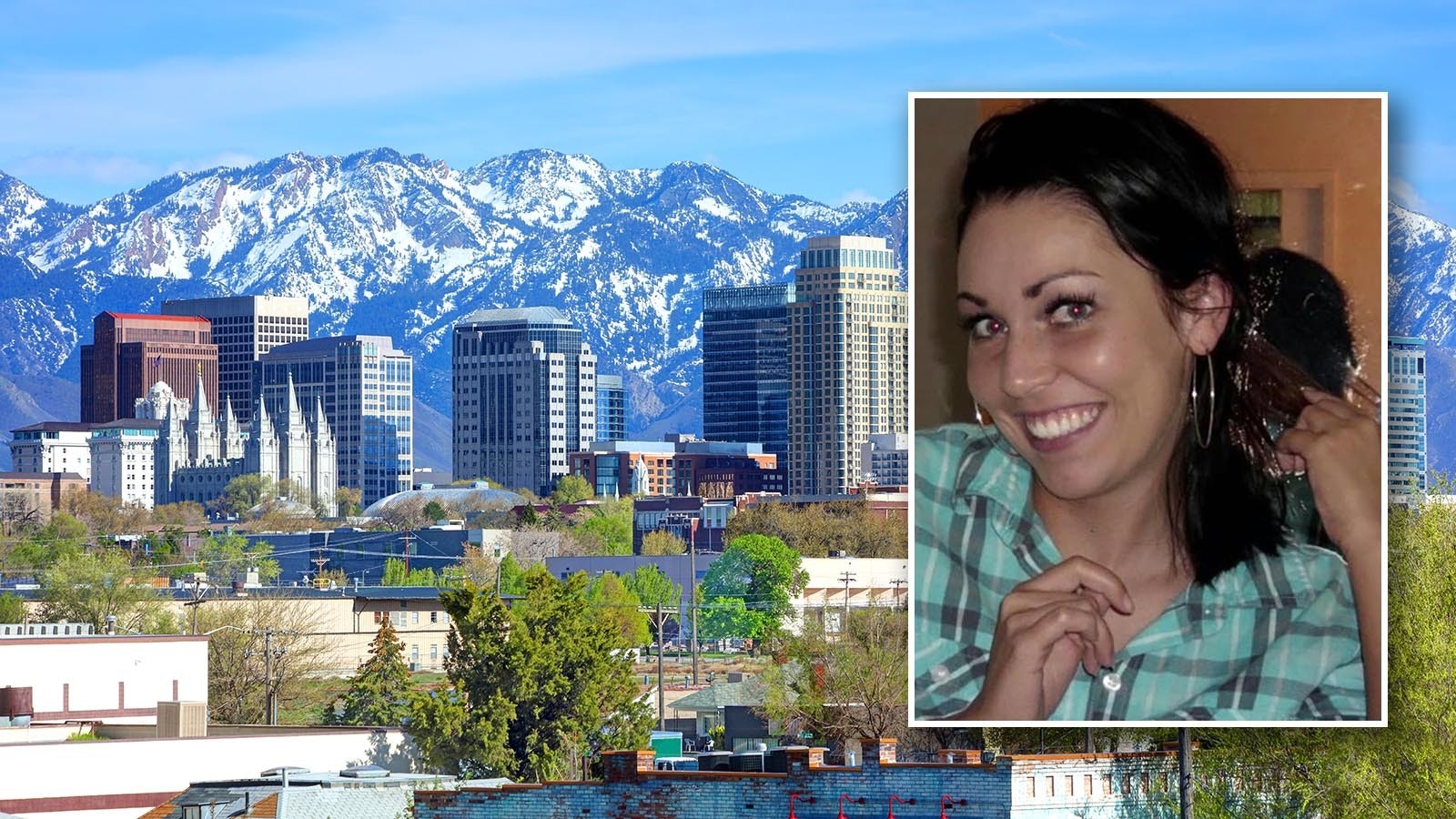Citing its importance to “Wyoming heritage and Wyoming rural heritage,” Rep. John Winter, R-Thermopolis, wants to make the Teton County Fairgrounds a state historic site.
The designation would automatically put the Fairgrounds under management of Wyoming State Parks, Historic Sites and Trails and the Wyoming State Historic Preservation Office (SHPO).
It’s a move that would pull management of the fairgrounds Teton County, which leases the land the fairgrounds sits on from the town of Jackson.
Winter and Jackson resident Rebecca Bextel believe there is a long-term effort underway to piece off property the fairgrounds sits on – which hosts events like the Jackson Hole Rodeo and Teton County Fair – for other uses like affordable housing.
“It’s happening piecemeal,” Winter said. “I just don’t understand why the town of Jackson and Teton County wants to do this.”
To preserve the fairgrounds, Winter has introduced House Bill 218, which would preserve the area as a state historic site.

Save The Rodeo Grounds
Bextel helped start Save the Rodeo Grounds, what she describes as a grassroots effort to educate people on the history and importance of rodeo in Jackson.
Last week, she held a rally at Little America Resort to drum up support for HB 218 and her group’s cause. About a dozen state legislators attended, as did U.S. Rep. Harriet Hageman, R-Wyoming. Free bottles of wine were given out to attendees.
Local Control
Bextel said she has no issues with the Teton County Fairgrounds not being under local control.
“I am not concerned, because our local elected officials do not value our Western heritage, but I am thankful the SHPO does,” Bextel said. “Our town council is only interested in packing in lots of housing for anyone who wants to move to Jackson Hole and turning us into a mill town.”
Zack Vosika, chairman of the Teton County Fair Board, said neither he nor any members of the board were contacted by Save the Rodeo Grounds to let them know legislation was being drafted.
He declined to comment when asked his opinion of the Save the Rodeo Grounds effort.
Changing Culture
Bextel, who grew up in Alabama, believes there is an effort in Teton County to eradicate Western heritage and culture. She brought her concerns to Winter, who took sponsored the legislation titled “Jackson Hole Rodeo and Fairgrounds – State Historic Site.”
“Where it’s at is we’re just having to go above the county and town because they’re not playing by the rules,” Bextel said. “We should’ve had the right to rezone this property.”
Teton County is considered the most expensive place to live in the United States.
As undeveloped land has grown scarce, the town of Jackson and Teton County have considered other uses for the grounds that could include affordable housing for the local workforce to help alleviate a local housing shortage.
“I don’t believe that the town or the county will completely eliminate Teton County without a fairgrounds of some aspect just to really maintain our Western heritage,” Vosika said.

‘Somebody Had To Say Something’
Although he lives nearly four hours away from Jackson, Winter has a personal connection to the fairgrounds, as he’s taken his children to the rodeo many times.
“I do not really approve in interfering in local politics, but a case like this where we’re talking about our Western heritage, the Wyoming way of life and the fact that rodeo brings a lot of income into Jackson, somebody had to say something,” he said.
He said he also was inspired by the effort of Bextel and the group’s co-founder Blair Maus who, according to the Jackson Hole News and Guide, moved to Jackson in 2020.
This isn’t the first time a disgruntled Teton County resident has brought issues to the Legislature after failing to get the results they wanted at the local level.
In 2019, at the behest of Steve and Polly Friess, son and daughter-in-law of former gubernatorial candidate Foster Friess, legislation was passed allowing the couple to build a private school, overriding Teton County zoning regulations and in the process stripping Wyoming counties of their zoning authority over private schools.
Bextel said the council has been “disingenuous” about the contract it has to lease the fairgrounds to Teton County.
“Really, what they have tried to do is take public land from all of us to ‘donate’ to a private developer for free, and that developer stands to make a lot of money at all of our expense,” she said.
The town of Jackson owns the fairgrounds, which Teton County leases from the municipality.
The town runs a contract with the rodeo concessionaire Jackson Hole Rodeo, which maintains a relationship with the county fair board. The fair board is in charge of managing the facility.
No Behind-Closed-Doors Effort
Arne Jorgensen, a member of the Jackson Town Council, said the town opposes HB 218.
He said conversations about finding a better place to host the fairgrounds and rodeo don’t mean there’s an effort to get rid of either.
“There has been 100% consistency from me, and certainly from any official action of the town, that any discussion about what might happen on that piece of property if the fair was to move is just that – it’s a discussion,” Jorgensen said.
“Just because someone thinks there might be a threat doesn’t mean there’s a threat,” he added. “Reality still matters.”
The county got a four-year extension on its fairgrounds lease last year that will run through 2030.
The year 2030 is mentioned in the legislation as when the town “plans to utilize the remaining acreage of the fairgrounds for housing.”
That’s just not true, Jorgensen said.
“There are no plans for some grand scheme out there that we’re going to do X-Y-Z with that property,” he said. “In the foreseeable future, this is all we can work with, there will be a rodeo and fair on that piece of property.”
Jorgensen said whether purposeful or not, the “confusion” that has been interjected into the debate over the fairgrounds over the last six months has been harmful.
“There is no threat … and there’s being harm done by the discussion that’s taking place,” he said.

A ‘Lingering Issue’
Vosika said he recently reminded the Teton County commissioners that a solution needs to be found for “the lingering lease.”
Solutions he would be amenable to include continuing the status quo, having the county buying the land from the town or building a world-class events complex for the fairgrounds by buying property from a private landowner.
“I feel pretty safe, and I don’t believe that the county commissioners and town council, just as far as a political standpoint, to let that go away might affect their political careers,” Vosika said.
Affordable Housing Unit
One of Bextel’s major points is based on the planned removal of an exhibit hall and community space on the fairgrounds that will be turned into a 48-unit affordable housing complex.
The section of the fairgrounds the housing is located on is separated by a city road from the rest of the fairgrounds. Jorgensen said this parcel has been used for non-rodeo activities by the town intermittently since the 1960s.
Winter’s bill would include it for protection.
Bextel said the Jackson Town Council circumvented its own zoning rules to allow a developer a 99-year lease and build on the property. She also said the developer received $15 million in federal tax credits for the project.
“That’s not the best fiduciary response,” Bextel said. “Why would you give a guy a free 99-year lease?”
Federal low-income tax credit law only requires low-income housing to be “rent-restricted” and occupied by income-eligible households for at least 15 years, called the “compliance period,” with an “extended use period” of at least another 15 years for a total of 30 years.
For the rest of the lease, the homes could technically become market-rate housing.
The town provided a ground lease plus an additional investment to the developer, and in exchange the developer is building the affordable housing and managing it.
A larger exhibit hall space is being built on the core area of the fairgrounds that is supposed to open by this summer.
A Larger Issue
Bextel generally opposes the approach Jackson has taken to affordable housing in the community.
She told Cowboy State Daily the story of how she first moved to Jackson with $186 to her name and no home. Slowly working her way up through the years, Bextel built a home, equity and wealth through hard work and sacrifice.
She and her husband first bought property 50 minutes away in Alpine, where they placed a rustic cabin. From there, they bought a townhouse, and later a home in town in Jackson.
“You’re not going to go buy your first house in Jackson Hole, you’re going to be commuting,” Bexel said. “But you’re going to build equity.”
‘No Threat’
The town of Jackson has owned the historic fairgrounds since 1941. The land originally sold to the town was 26.09 acres, but the property now is 12.35 acres.
“There is definitely a slight risk that they could ask for more, but as it shows right now, we’re on such a tight piece that I believe it would probably stay the same for awhile,” Vosika said.
Bextel believes this is one piece of evidence showing the town’s intention to piecemeal out the fairgrounds and diminish rodeo in the community.
Jorgensen said this isn’t the case and that Bextel is jumping to conclusions based on the fact there is no concrete plan for the Fairgrounds past 2030.
“There is no threat to the fair or the rodeo in Teton County,” he said.

Possible Relocation
Planning documents created by the town and county over the last few years identify the fairgrounds as a possible site of mixed income, market-driven and restricted housing.
Also mentioned is the possibility of relocating the fairgrounds, but no details on how that would happen or whether the housing projects would eventually encompass the entire fairgrounds.
“Our fair board has said for decades that they’re interested in another site,” Jorgensen said. “They are our communities’ subject matter experts on the fair.”
Relocating the fairgrounds has been considered.
According to the News and Guide, proposals were made in 1996 and 2001 to relocate the grounds. Last spring, town and county officials considered a $40 million specific purpose excise tax application to relocate the fairgrounds, but ultimately pulled the application after deciding more time was needed to study the issue.
Bextel believes the fairgrounds may be moved to a swampy 10-acre plot south of town.
“They’re going to hold a livestock auction once a year and call that the fair,” she said.
“If the fairgrounds is already at a space, if that’s the No. 1 complaint from the fair board – we don’t have enough space, then why would you start chopping up at something with nowhere to replace it?” she asked.
Bextel also said the town doesn’t want money for the property.
“They’re trying to reinvent the town, they’re trying to get rid of our Western heritage and way of life and fill it with as much housing as possible,” she said.
What Happens?
If HB 218 passes, the county fairgrounds and all events held there will be under control of the state of Wyoming. As such, an undetermined amount of money would be dedicated to running the grounds.
Additionally, the town of Jackson receives a 10% cut of ticket sales at the fairgrounds, which was about $27,000 last year, Vosika said.
“Would that transfer over to the state? Would we be allowed to continue to operate if it is a historical site?” he questioned. “How would that effect from being under the county government eye to the state?”
Gary Schoene, public relations officer for Wyoming State Parks, Historic Sites and Trails, said there are many unanswered questions about how the state’s management of the facility would work and whether town property can be designated as historic.
He said the department has no position on the bill.
“We’re just kind of waiting to see what happens,” he said.
No Debate Here
Likely the least controversial aspect of the legislation is naming the grounds after Lance Cpl. Rylee McCollum, a Marine from Jackson who was killed in action in Afghanistan in 2021.
Vosika said he has no problem with this part of the legislation. He coached McCollum how to wrestle when he was a child.
“I am in full support of the Rylee McCollum movement, but I do believe that we can solve this issue at the county and town level,” Vosika said.
The bill has been referred to the Travel, Recreation, Wildlife and Cultural Resources Committee but no date has been set for its discussion.





